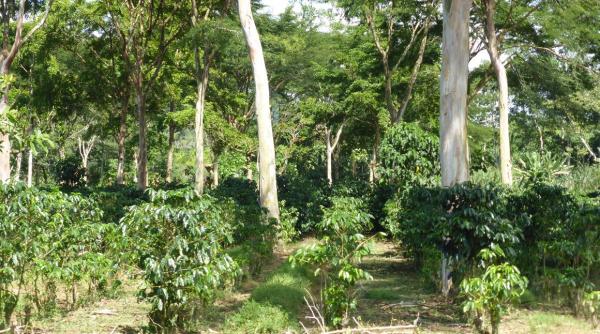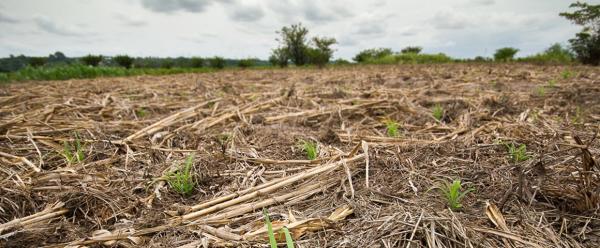Call to action 16 April 2025
- Home
- Press area
- Press releases
- CIRAD is committed to the future of tropical forests
One Forest Summit: CIRAD’s sustained commitment to tropical forests

The Dindefelo forest in eastern Senegal © R. Belmin, CIRAD
There are many types of tropical forests: rainforests, dry forests, swamp forests and agriculture/forestry mosaics. On a global scale, they are home to 80% of the Earth’s biodiversity. They also play a key role in mitigation of and adaptation to climate change.
However, their social, economic and ecological functions are under serious threat. They are seriously affected by deforestation and forest degradation caused by human activities. Moreover, rapid changes in temperatures and in rainfall patterns can affect carbon sequestration and the preservation of biodiversity.
In response to these global challenges, policymakers and forest managers need to shift away from profit-driven approaches in favour of territorial planning and resource management policies that benefit both local populations and the common good. CIRAD and its partners are determined to support that transition, by ensuring that tropical forest users recognize their value.
There is a need for ambitious, interdisciplinary, participatory and transformative forestry research. CIRAD firmly believes in research focused on action and the implementation of solutions that foster the conservation of tropical forest systems to benefit rural populations and society in general.
In the position paper, CIRAD sets out five main ways of securing the future of tropical forests:
- Seeing tropical forests as specific development issues: over and above the ecological aspect, forests are economic and social resources that satisfy the immediate, vital needs of a wide range of people. It is therefore essential to ensure that forest management encompasses those activities and uses.
- Taking account of the diversity of situations: tropical forests are plural and complex. There is no magic bullet: each socio-ecosystem must be monitored according to its specificities.
- Taking a contextualized, multi-scale approach to forest management: in addition to the context, forests must be analysed differently depending on scale. From tree to territory, functions change: it is important to understand those functions and organize governance hand in hand with the entire range of stakeholders.
- Fostering a territory-based approach for sustainable forest management: while solutions are both numerous and localized, the issue of preserving tropical forests is universal. As such, they should be managed in line with the notion of common goods, taking account of various elements of territory-based approaches. For instance, soils, water, trees and landscapes are common goods, while household income, wellbeing and employment are private goods.
- Promoting participatory governance: tropical forests are not just biological systems. They are part of economic and social systems of local and global importance. Their degradation is proof of our inability to articulate these different dynamics and systems. To respond to current challenges, States, the communities concerned, the private sector and a range of territorial actors must find new forms of governance. Forestry research will serve to support and assess these tentative networks and ensure that they are intersectoral, committed and multi-scale.



























